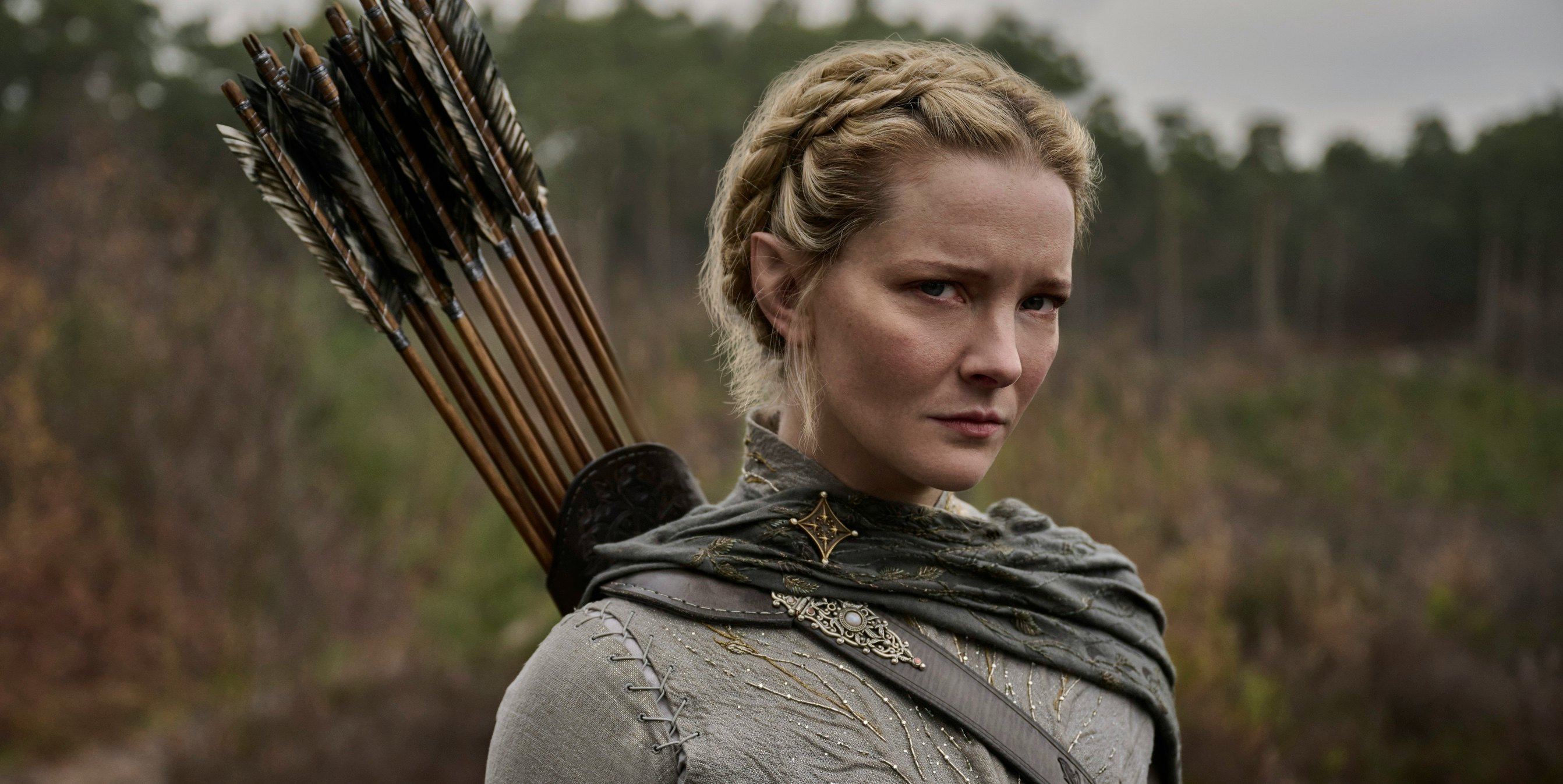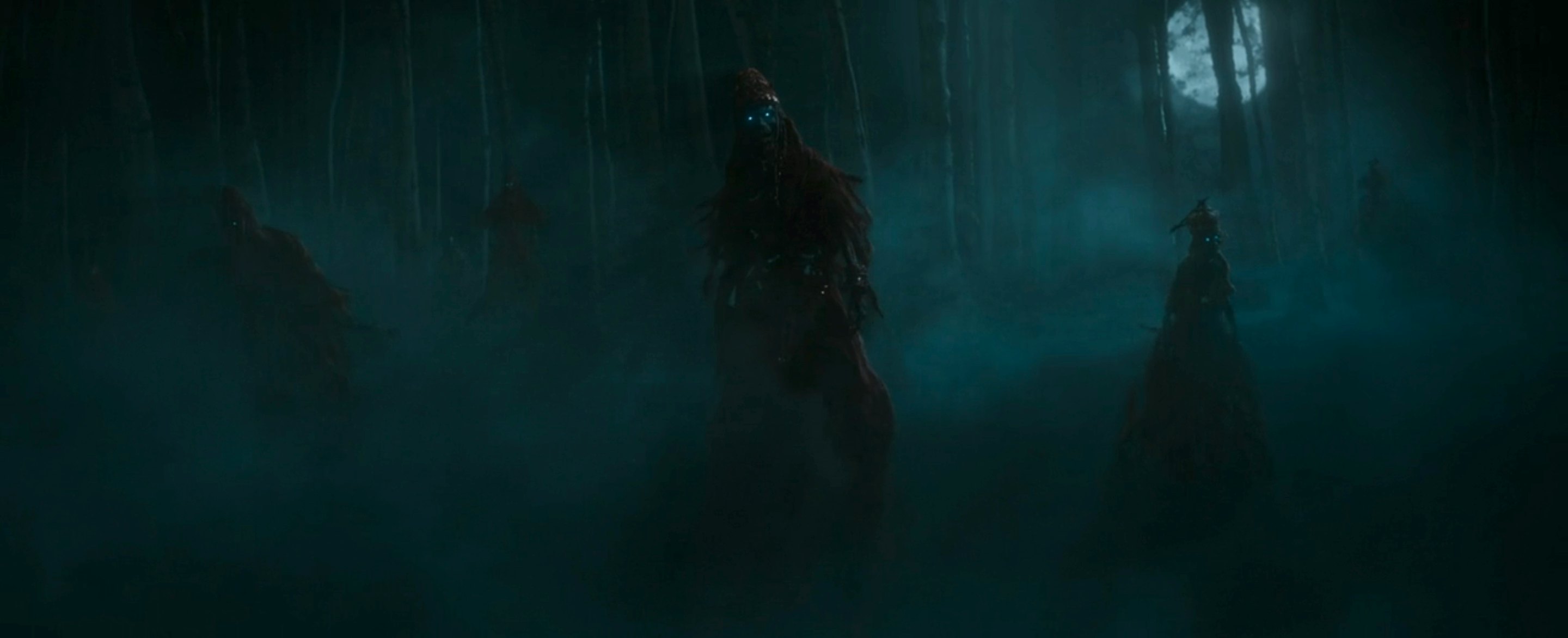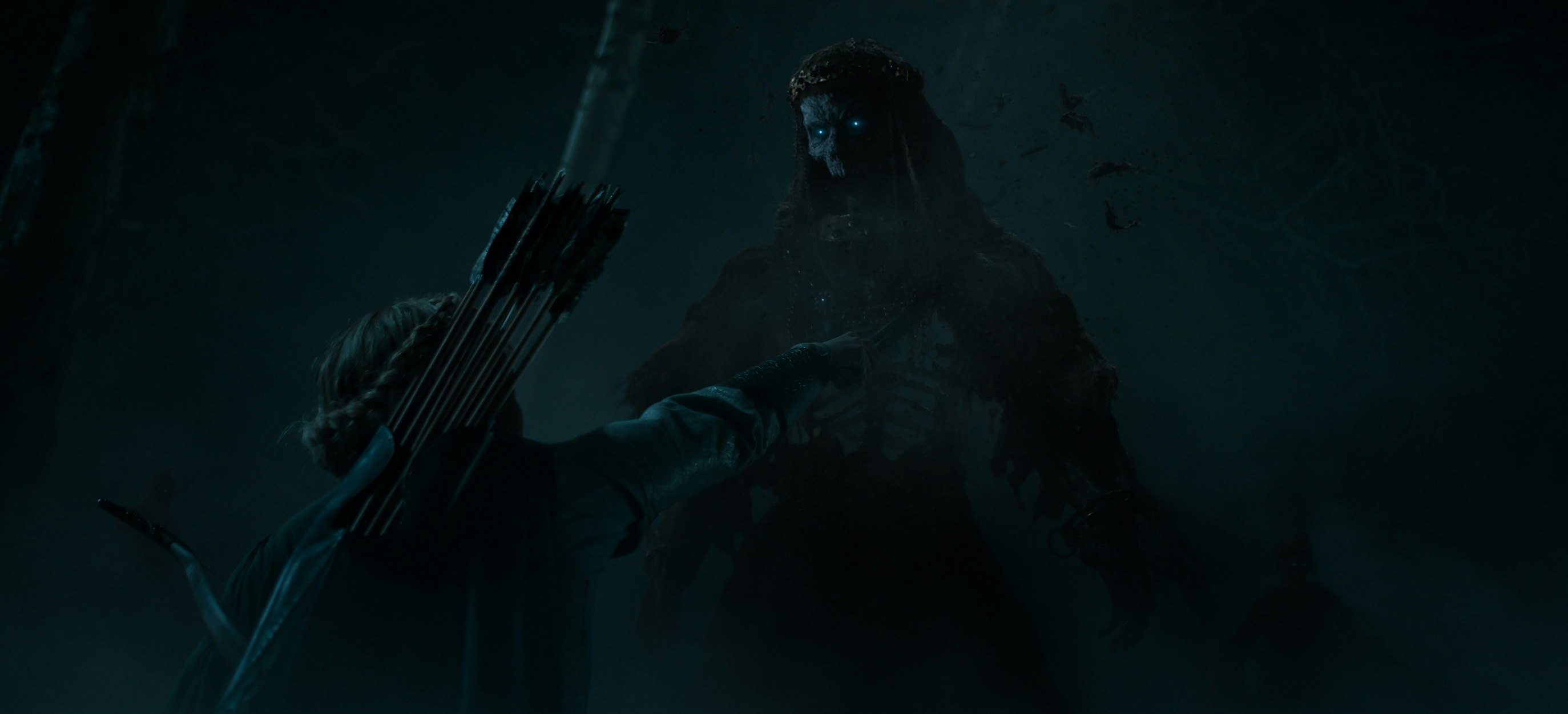
In its second season, The Lord of the Rings: The Rings of Power isn't just moving full steam ahead into the conflict between the Elves and Sauron (Charlie Vickers) that is at the heart of the Second Age. It is also finding unexpected, sometimes ingenious ways to fit in elements from J.R.R. Tolkien's Lord of the Rings books that aren’t featured in Peter Jackson's beloved adaptations of the author's work. The Prime Video series has, for instance, found space in its second season for the mysterious, eccentric Tom Bombadil (Rory Kinnear) — a powerful being that Jackson and his collaborators famously chose to exclude from their Fellowship of the Ring adaptation.
The latest episode of The Rings of Power Season 2, titled "Eldest," also features a sequence in which Galadriel (Morfydd Clark), Elrond (Robert Aramayo), and the rest of their Elvish scout party find themselves surrounded by restless, hungry spirits. It's a set piece that will likely come as a spooky surprise to those unfamiliar with Tolkien's written works. For book readers, however, it’ll probably be seen as both a dubious, canon-breaking bit of original material and an attempt to give them something they've been waiting 23 years or more to see.
What are the Barrow-wights?

In "Eldest," Galadriel and co. face off against the terrifying ghouls known among Tolkien readers as "Barrow-wights." They appear briefly in the book version of The Fellowship of the Ring, published in 1954, when Frodo Baggins and his friends end up trapped in the Barrow-downs by the wights. Frodo and his fellow Hobbits are subsequently rescued by Tom Bombadil, who appears again to save the day after Frodo sings his song. This whole sequence, notably, was left out of Peter Jackson's Fellowship of the Ring film, which skips over the Hobbits' meeting with Tom Bombadil and their trek through the Barrow-downs altogether.
The origins of the Barrow-wights aren't entirely clear. It is, however, known that they were originally sent to the Barrow-downs during the Third Age by the Witch-king of Angmar. He sent the spirits to that region in order to prevent any Men — or anyone else, for that matter — from successfully rebuilding the fallen kingdom of Cardolan, which he himself oversaw the destruction of. It's also said that the Witch-king later revisited the Barrow-downs in order to reawaken the Barrow-wights and prepare them for a potential attack on the Ring-bearer that he and his fellow Nazgûl were hunting.
A Canon-Breaking Debut
The Witch-king, of course, doesn't yet exist in The Rings of Power, which means that there isn't any canonical reason for the Barrow-wights to be haunting the Barrow-downs yet. The kingdom of Cardolan hasn't even been founded yet in the series. For this reason, the Barrow-wights' inclusion in "Eldest" does represent yet another instance of The Rings of Power diverging from established Tolkien canon. The show also invents its own way for the Barrow-wights to be dispatched with when Elrond tells his fellow Elves to use the same weapons that the spirits' physical bodies were buried with to cut through them.
It's an invention that, to The Rings of Power's credit, makes a fair bit of sense within its fantasy world, but it has little basis in Tolkien canon. The Barrow-wights are, after all, taken care of in The Fellowship of the Ring by Tom Bombadil, who seems decidedly more powerful than most other characters in Middle-earth. (That said, Merry does use his Barrow-blade — i.e., a dagger taken from the Barrow-downs — to successfully stab the Witch-king in the knee in The Return of the King, so it is canonically accurate to suggest that the weapons buried in those mounds are more powerful than normal swords and daggers.)

Some Tolkien fans will probably be disappointed by The Rings of Power's decision to go against canon and include the Barrow-wights in its latest season. To those viewers' credit, the spirits don't ultimately do all that much in "Eldest,” aside from give The Rings of Power an excuse to pack in a fun, uniquely creepy action sequence.
For all of the fans who have been waiting years to see what live-action versions of the Barrow-wights might look like, though, the monsters' inclusion in "Eldest" will likely be seen as something that's been a long time coming. Either way, much like its Tom Bombadil storyline this season, The Rings of Power's Barrow-wights scene really feels like yet another piece of the show's ongoing effort to provide the most all-encompassing live-action vision of Middle-earth to date.







